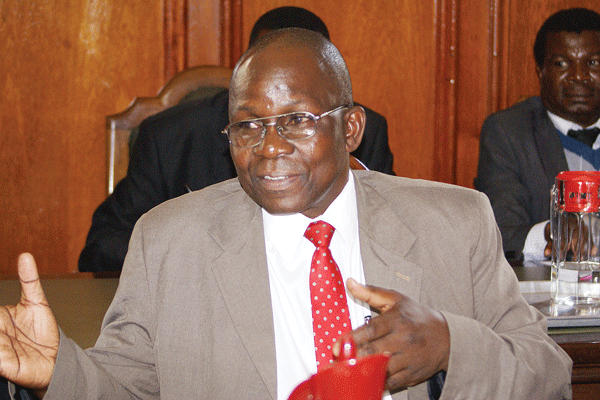
TWO decisions by the Bulawayo City Council have in the past few days been the subject for debate in the city and across Zimbabwe.
Opinion: Zibusiso Dube

The first is the decision by the local authority to purchase tablets for councillors and senior bureaucrats at a cost of up to $40 000.
According to reports, this decision was made to ensure that councillors can access documents online and communicate more effectively in carrying out their mandate.
Councillors had also complained that the laptops they were allocated three years ago were too heavy to carry. The second is the decision by the council to buy a new mayoral vehicle at a cost of $118 000.
The vehicle, which current mayor, councillor Martin Moyo took possession of recently is a Mercedes Benz GLE 250.
It replaces the Mazda BT50, which the mayor has been using since his appointment in 2013.
There has been an expected furore over these two decisions, with residents’ groupings and civil society organisations questioning their prudence, citing shortfalls in service provision and accusing the local authority of poor prioritisation of issues.
- Chamisa under fire over US$120K donation
- Mavhunga puts DeMbare into Chibuku quarterfinals
- Pension funds bet on Cabora Bassa oilfields
- Councils defy govt fire tender directive
Keep Reading
Some have complained that these purchases were a waste of money, suggesting that while it is important for councillors to be connected online, and for the mayor to have a befitting vehicle, the most important thing at the moment was to improve service delivery.
Meanwhile, others have been curious about the timing of these developments, questioning the rationale for these purchases only one year before the end of the current tenure of council.
For its part, the Bulawayo City Council, through its public relations department has hit back at criticism over buying of the mayoral vehicle, saying it was above board and approved by the government, cabinet and the relevant ministry.
Moyo has said council was tired of negative comments, highlighting that the car was not his personal property and that society had negative and retrogressive people, who would stifle the city’s prosperity by worrying about such issues.
Other citizens, in support of the local authority, have highlighted that council was right to buy the car at that amount because it reflected the status of the office of the mayor of Bulawayo.
But a third decision made by council recently is relevant to this debate.
According to the latest council minutes, councillors blocked a proposal by the acting director of housing and community services to purchase of a mayoral residence at a cost of $120 000.
A suitable house had reportedly been identified in Hillside and a recommendation had been put forward that since the mayoral residence was not budgeted for in 2017, funds allocated for Bulawayo pool upgrading and White City Stadium be moved (viremented) to cover the cost of the house.
In refusing to approve the proposal, councillors argued that the city’s financial position was not able to support such an investment.
According to the minutes: “They referred to council’s creditors and service delivery shortfalls as some of the factors that made such an investment untimely.”
Two key issues emerge from this.
First, there is evidence that people within council chambers understand the precarious financial situation that the Bulawayo City Council is in.
In any case, council is on record bemoaning revenue challenges, with town clerk, Christopher Dube in his 2016 end-of-year message, citing shortage of finance as one of the key challenges impacting negatively on capital developments.
Second, there is a sign of inconsistency in decision-making by the council.
It simply does not make sense that councillors would block purchase of a mayoral house at $120 000 as expensive and untimely, then turn around and purchase a mayoral vehicle for $118 000.
Indeed, the fact that the proposed but unapproved mayoral house and the mayoral vehicle cost similar amounts raises further questions.
Is it really necessary for a city hamstrung by revenue challenges and facing shortfalls in service delivery to buy its mayor a car that costs as much as a hypothetical mayoral residence?
Is this really in the interests of the welfare of residents of Bulawayo at this time?
While the Bulawayo City Council may defend its decision to buy the mayor a car for $118 000 and roundly rebuke and even insult those who raise concerns, the writing is on the wall.
The council knows that its move is not in the best interests of Bulawayo.
It would have been better for the local authority to purchase a cheaper (but still respectable) vehicle and use the remainder of the money for other pressing needs.
Zibusiso Dube is the information manager at Bulawayo Progressive Residents Association (BPRA). He writes in his personal capacity.











